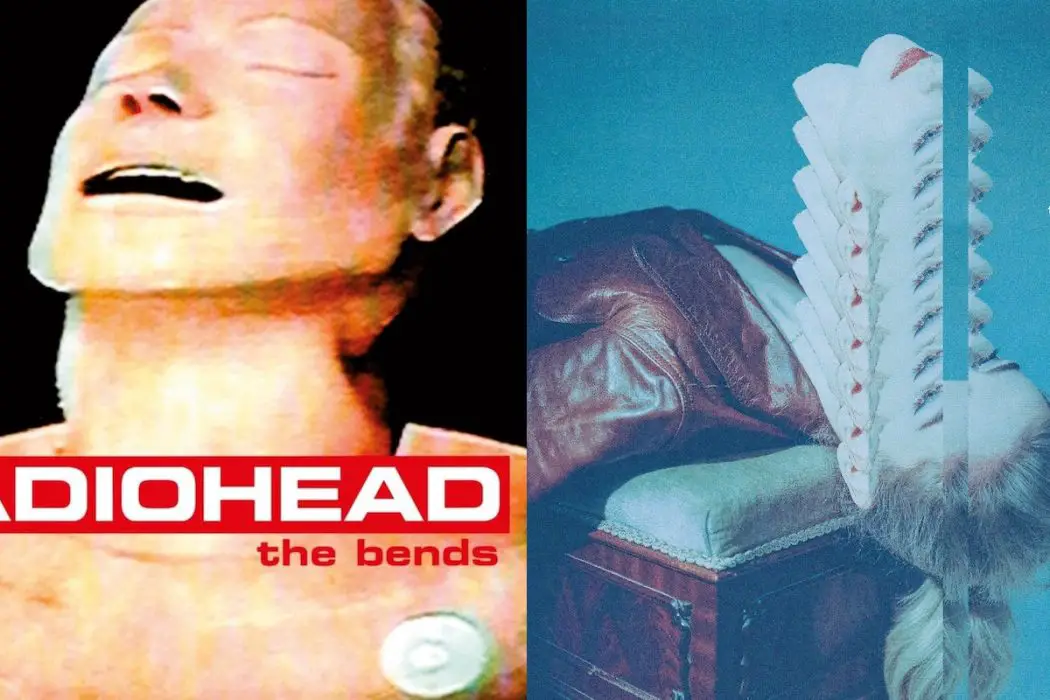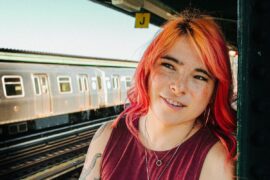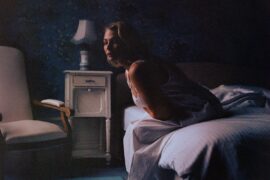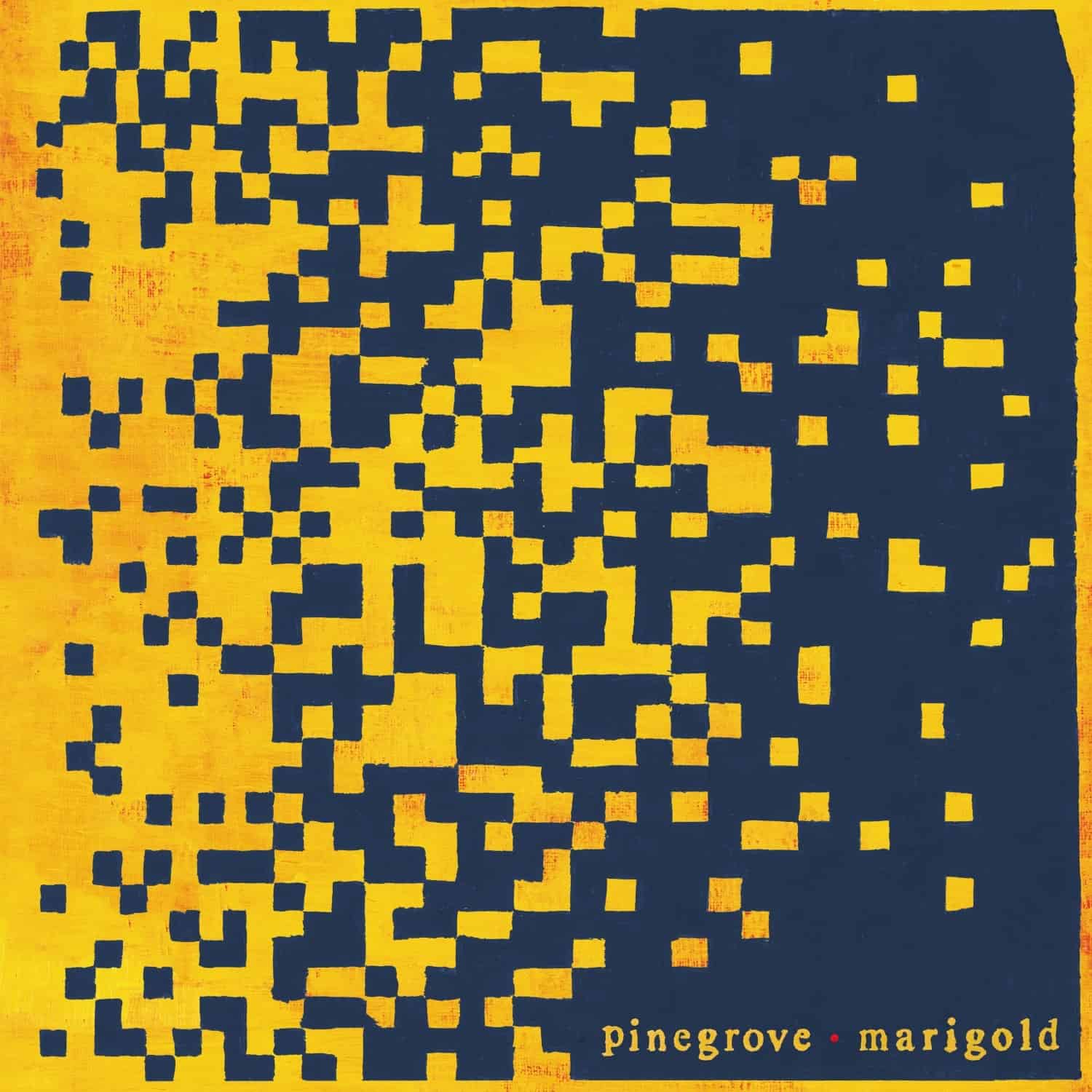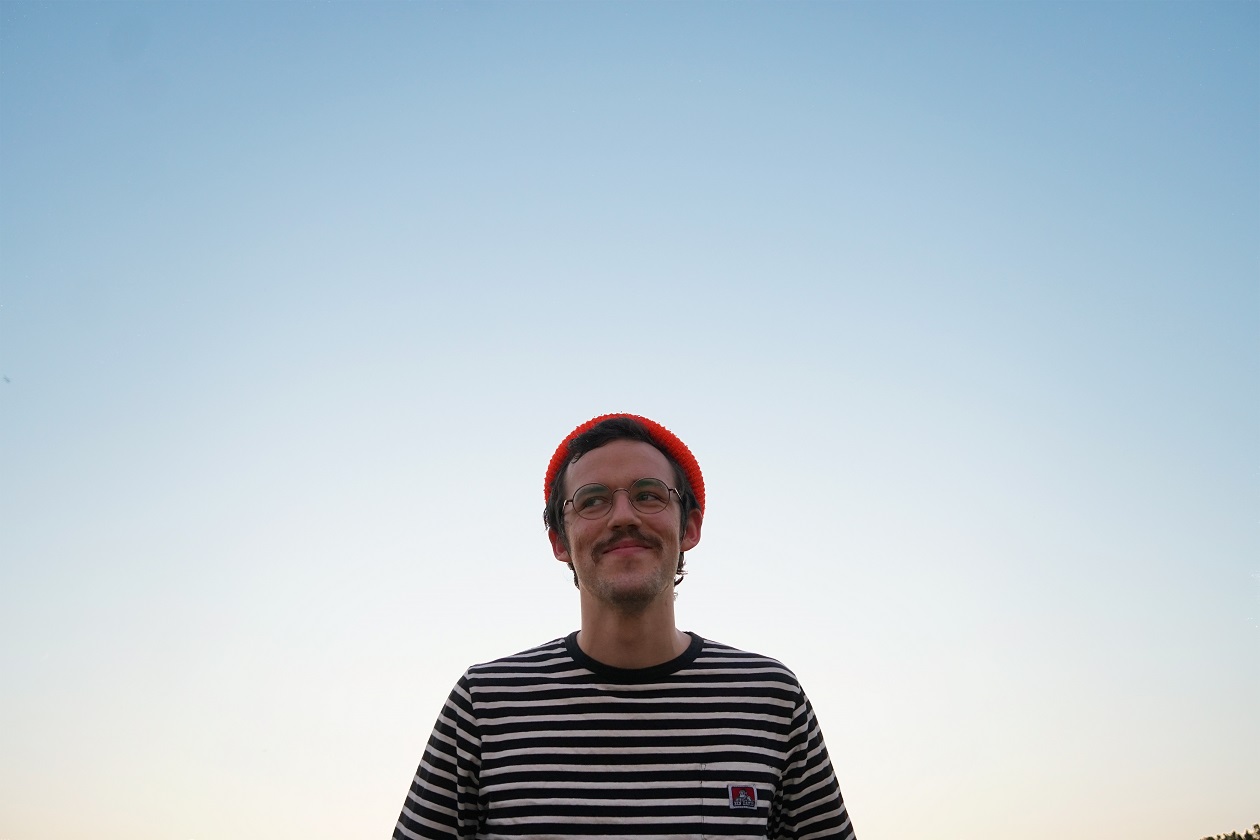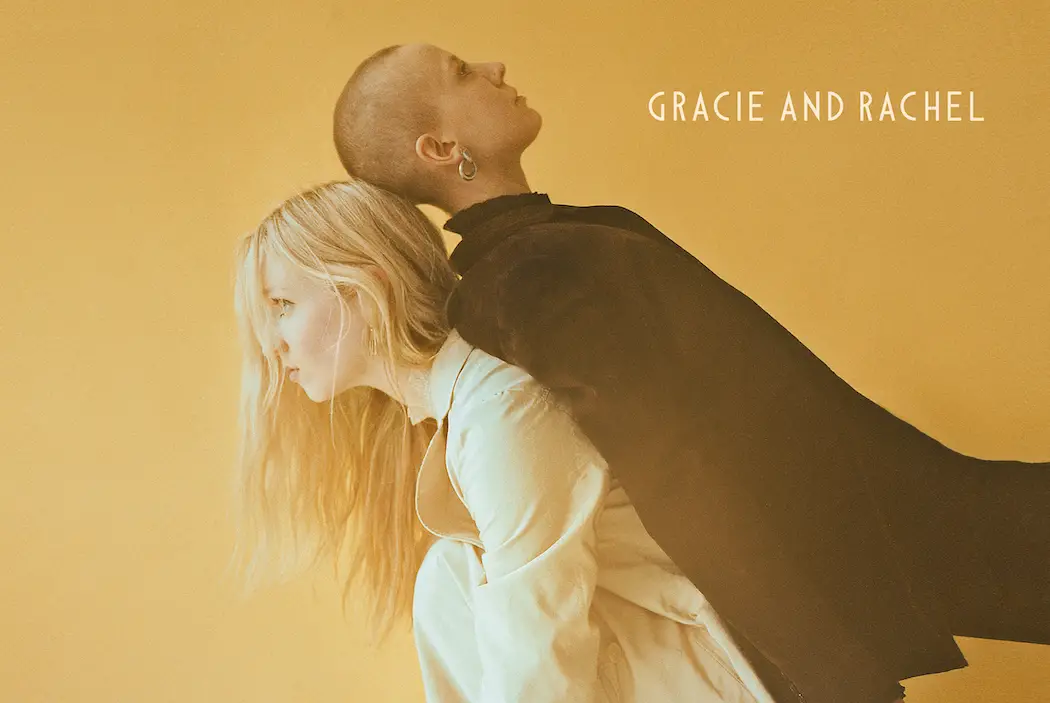Rosie Carney’s ‘The Bends’ transforms Radiohead’s 1995 classic album into an achingly tender and stirring indie folk masterpiece.
Stream: ‘The Bends’ – Rosie Carney
You can force it but it will not come
You can taste it but it will not form
You can crush it but it’s always here
You can crush it but it’s always near
Chasing you home, saying
Everything is broken…
Music fans around the world recognize the opening lyrics to “Planet Telex,” the dramatic and sweeping entrance to Radiohead’s seminal sophomore album. Released in 1995, The Bends asserted Radiohead as a singular force of artistry, trailblazing their own path in the alternative sphere. Jettisoning the English act further into the spotlight, the record redefined the Radiohead that had first emerged through ’93’s Pablo Honey, at once building upon and ebbing away from the grunge and angst of their debut whilst they gravitated deeper into a vortex of experimental music, social issues, and colorful (if not entirely cryptic) lyricism. Sweeping high and low, but never dry, The Bends remains a heavily-lauded record to this day: It is considered to be one of the most influential releases of its era, and is widely regarded as one of the greatest albums of all time.
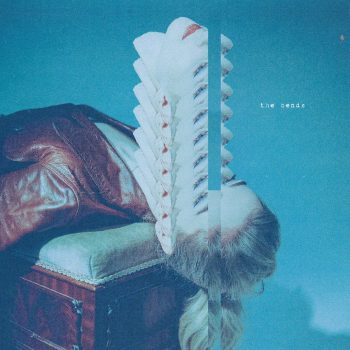
Covering such a timeless album from end to hauntingly raw end was no walk in the park for Rosie Carney; the Irish singer/songwriter knew whose shoes she was stepping into when she embarked upon the massive task of reworking Radiohead’s second record in her voice. Yet what began with an unassuming cover of “Fake Plastic Trees” evolved naturally into an ambitious cover album project for Carney, who found herself in COVID-19 lockdown at her parents’ house in Ireland with little to do, and all the time in the world to do it.
“When lockdown kicked off, my relationship with music became quite toxic,” Carney tells Atwood Magazine. “I definitely went into a panic mode and scared myself out of writing which was so bad for me, especially because making music can be so cathartic for me, but covering The Bends took me back to my roots and helped to kind of hit a restart button, which I really needed.”
Stream: “Bones” – Rosie Carney (Radiohead cover)
Released December 11, 2020 via Color Study / Ultra Records, Rosie Carney’s The Bends transforms Radiohead’s classic into an achingly tender and stirring indie folk masterpiece. The stunning recreation paints each of the album’s twelve tracks in a new light as Carney injects her soothing, beautiful signature folk sound into Thom Yorke and co.’s intimate compositions. The result is as ethereal as it is haunting: A breathtaking soundtrack whose lyrics and melodies we know all too well, yet whose performance leaves us breathless and shaking.
A 23-year-old singer/songwriter hailing from Donegal, Ireland, Rosie Carney has been releasing music for the better part of five years now. She garnered early praise for songs like “Better Man” and “Awake Me,” the latter of which was described by Atwood Magazine as “at once a tender and powerful act of self-confession and a call for acceptance set to music.” Carney released her long-anticipated and acclaimed debut album, Bare, in 2019. This year, she has put out a four-track EP entitled i dreamed i was the night and released two additional standalone duets: One, “Anthems for a Seventeen Year Old Girl,” with Charli Adams, and the other, “By My Side,” with The Paper Kites. Covering The Bends was not a part of her original 2020 plans, but once she got going, as she explains, there was no stopping her. The project was as much an artistic exercise as it was a therapeutic one.
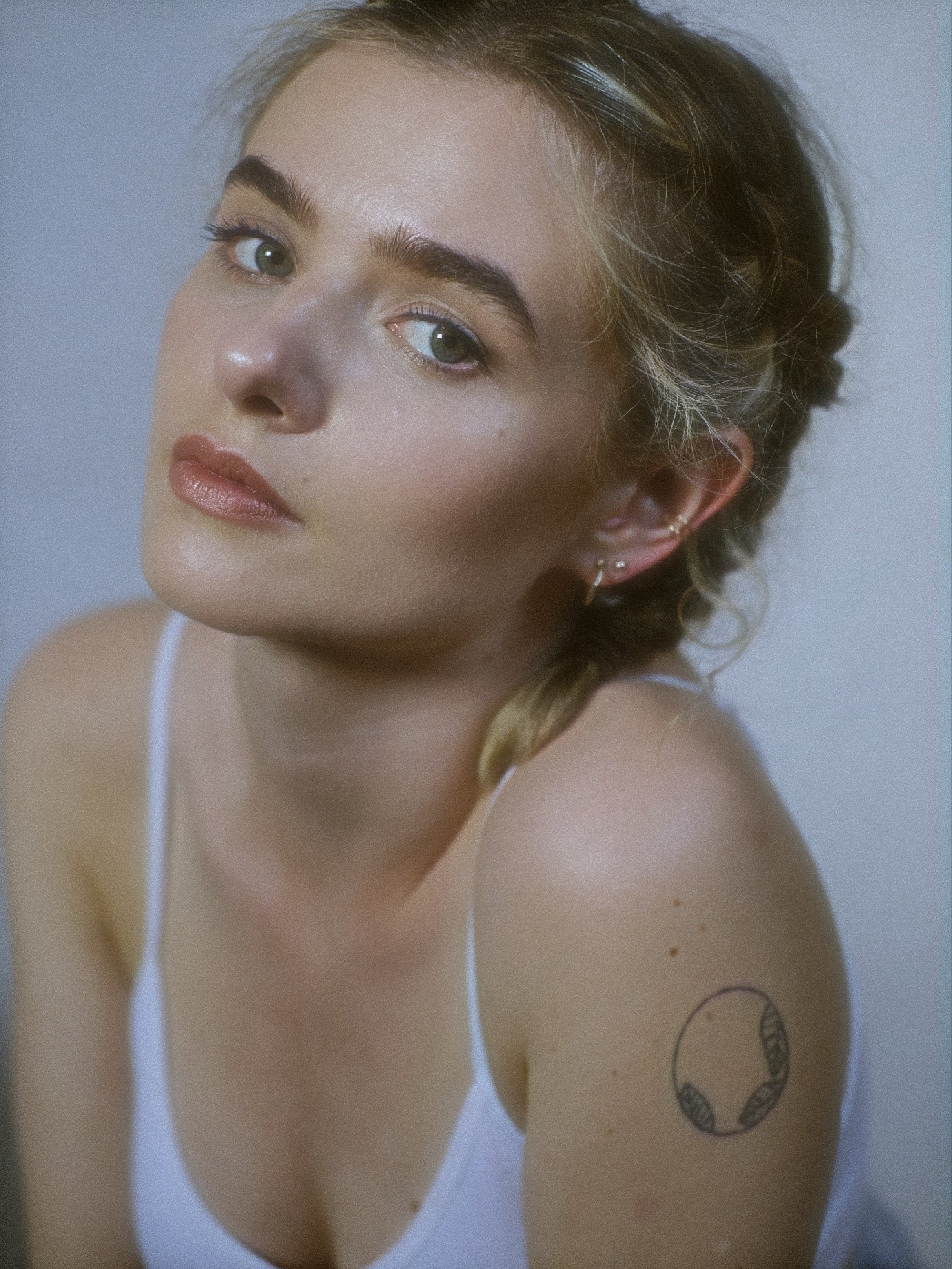
“This album has always been a go-to for me,” Carney says. “It’s always made me feel very nostalgic and homesick in a weirdly comforting way.”
Carney approached The Bends with two main objectives: “The first was to make sure each song came to life in a much different way than the original,” she notes. “Obviously, I’m not at risk of sounding too much like Radiohead in 1995, but there are still ways to be predictable and I hope we avoided some of that.”
“The second was how to make each song stand apart from the rest so that the record stayed interesting and held up on its own, even without referencing the original. On some songs that meant going more electric, or switching to piano, or adding beats and string arrangements. There are actually a lot of firsts for me on this album. But I made sure not to put pressure on myself. I took my time and gave myself the freedom to do whatever felt right to me.”
What begins the original record with a bang, begins this one with a whisper: “Planet Telex” sets the scene with gentle ethereal guitars and lilting vocal harmonies. Carney approaches crescendos, but never gives her audience the satisfaction of feeling her tension fully released in sound. “The Bends” follows with a fingerpicked acoustic guitar accompaniment and binaural vocal effects. “High and Dry” is another acoustic ballad, with layers of vocals creating moments of tasteful dazzling harmony.
Later on, songs like “Just” and “My Iron Lung” feature further experimentation as Carney plays within production, creating a heavy, horror-like environment in the former and converting a delicate piano ballad into an all-encompassing, immersive upheaval in the latter. “Black Star” adds drums and light strings for added emphasis, and Carney’s soaring a capella rendition of “Sulk” features what she refers to as “a little vocoder symphony.” Powerful atmospherics abound throughout, and yet what’s perhaps most impressive and laudable about this album is how definitively Rosie Carney left her mark with a relatively static set of instruments at her disposal.
“It’s scary to let something be personal and to let yourself be vulnerable when working on something, but when you allow yourself that space and freedom, that’s when the true magic happens,” Carney says. “I kind of had to learn to just trust myself with this one, and some people will probably hate what I’ve done, but that’s okay because I know that I did the best I could.”
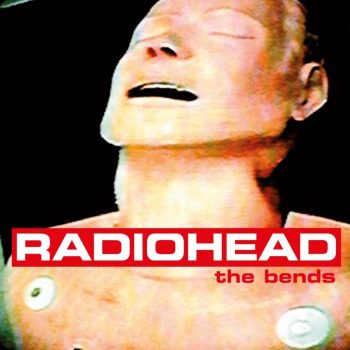
Carney is probably done covering albums for now, although she’s already receiving requests for OK Computer and Kid A. While she doesn’t plan on becoming a Radiohead tribute act, “who knows what another lockdown could bring.”
Fingers crossed it doesn’t come to that.
With 2020 marking The Bends‘ 25th anniversary, Rosie Carney’s release arrives as both a tribute and a transformation.
The album that established Radiohead’s preeminence is presented here as a soft, poignant, and emotional work of art. It’s a magnificent accomplishment – one of the finest additions to the pantheon of Radiohead covers, as well as a resounding triumph for Rosie Carney.
“My biggest takeaway from this whole project was that it is okay to slow down and to go back to your roots,” Carney reflects. “Even if it takes people a sec to catch on, even if people don’t catch on – so long as you’re doing it for yourself, that’s the main and most fulfilling thing. I hope listeners can hear and see me as I truly am, because I felt I was just being me whilst doing it, and that was very rewarding for me.”
The Bends is out December 11, 2020. Dive into Rosie Carney’s ambitious and impressive covers project in Atwood Magazine‘s interview below.
— —
A CONVERSATION WITH ROSIE CARNEY

Atwood Magazine: Hey Rosie! Thank you for your time. How have you been faring through the pandemic?
Rosie Carney: Hey! Ahh the pandemic, what a time-warping box of madness it’s been. I’m faring a lot better than I was thankfully. I think I’ve gotten over the worst of the inevitable existential dread it brought.
Making music has been a true source of joy for me throughout this year, and it’s served new purposes for me, too: Therapy, a coping mechanism, and expressive art. What’s your experience been like recently?
Rosie Carney: Well, when lockdown kicked off, my relationship with music became quite toxic. I definitely went into a panic mode and scared myself out of writing which was so bad for me, especially because making music can be so cathartic for me, but covering The Bends took me back to my roots and helped to kind of hit a restart button, which I really needed. My relationship with music feels stronger than ever and I feel like I understand myself as a musician more.
Covering ‘The Bends’ took me back to my roots and helped to kind of hit a restart button, which I really needed.
Getting into it, I have to ask you point blank: what inspired you to record The Bends as a full album?
Rosie Carney: One painfully depressing afternoon, I decided to cover “Fake Plastic Trees”, and it kind of dovetailed from there. I love how singing that song made me feel, but obviously everyone covers that song, so I thought why not do the whole album?
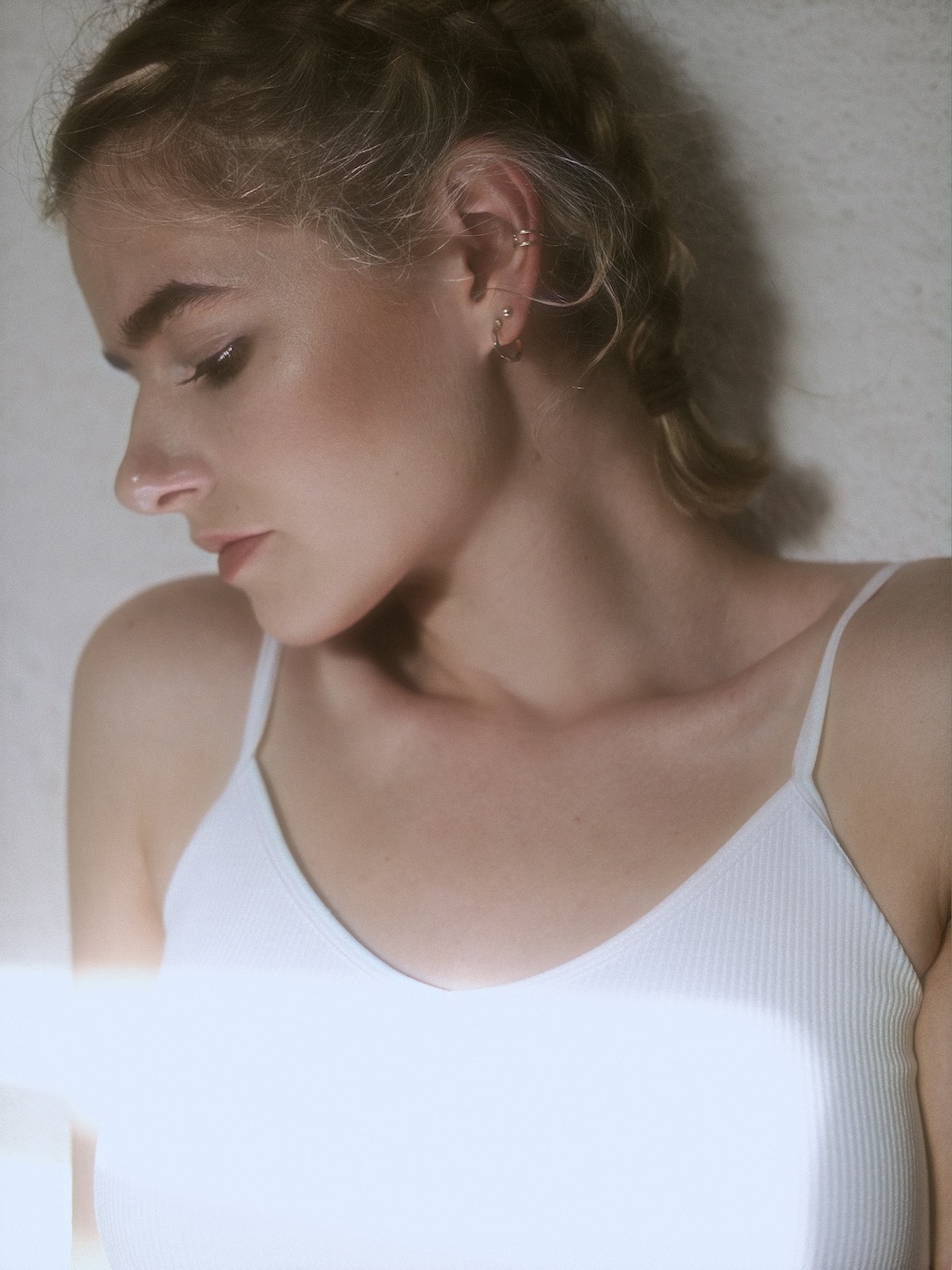
Why The Bends? Is this your favorite album?
Rosie Carney: This album has always been a go-to for me, it’s always made me feel very nostalgic and homesick in a weirdly comforting way, so it seemed like a fun idea, but after dissecting and learning each song, my appreciation and love for it has grown 1000 folds. It’s now one of my favourite albums ever.
Rosie Carney: I guess I didn’t realise the depth of the lyrics on this album. I’ve always loved Radiohead and I’ve always been so drawn to their overall genre-less sound, but while I was learning this record, I didn’t expect the lyrics to impact me on the level that they did. Each song is so relatable and so timeless and I thin that’s why it connected and stood out to me most of all in 2020.
A lot of diehard Radiohead fans would probably call me a sellout (here’s hoping they’re kind), but The Bends is my favorite Radiohead record! It was my ticket in and the way I first discovered them some years ago. What attracts you to this album? Why do you think you like this record?
Rosie Carney: I feel like it’s a timeless album and there’s a reason people and artists cling to it now more than ever, and that’s because of its raw honesty. Artists can get a lot of shit for writing about how they’re really feeling, especially if those feelings are sadness or fear, but I feel like in such an isolating year (literally) we’ve needed to turn to that honest safety blanket for comfort. I’ve always loved this album, I love all of their albums, but after learning and covering it, I’ve realised how much I actually needed to hear each song. It’s become a weird world of safety for me. It makes me feel kind of understood and not so crazy.
I feel like in such an isolating year (literally) we’ve needed to turn to that honest safety blanket for comfort.
Have you long thought about recording a full cover album like this before? Were there other albums in contention? I can imagine a really cool version of Dark Side of the Moon in your voice... or The White Album... or even (What’s the Story) Morning Glory?
Rosie Carney: Honestly no. It’s never been something I’ve thought about doing. I do enjoy covering songs, but I never thought I’d cover an entire album before. It’s funny because now people are requesting OK Computer and Kid A. Perhaps I should just cover every single Radiohead song. Just kidding.. unless.. no I am actually joking.
I understand this started when you looked into “Fake Plastic Trees”... after you decided to record the full album, where did you start? Which song did you record first?
Rosie Carney: Yeah, so it all kicked off with “Fake Plastic Trees”. I was actually in the middle of trying to record a cover of “People, I’ve Been Sad” by Christine and the Queens, which is a song I love, but something just wasn’t sitting right with me. So, I made myself a cuppa and listened to FPT for comfort, and after ugly crying to it, I decided to give it a go. It’s cool because you can hear lorries driving past my flat in my cover of it. Anyway, I sent it to my manager and it just went from there.
Did you map out a plan for the entire record, or take each song individually as its own project?
Rosie Carney: The second song I recorded was “Bones” and that’s when things really started to click. At that point I had a conversation with my team (including my wonderful co-producer Jamie Macneal) about a couple goals. The first was to make sure each song came to life in a much different way than the original. Obviously, I’m not at risk of sounding too much like Radiohead in 1995, but there are still ways to be predictable and I hope we avoided some of that. The second was how to make each song stand apart from the rest so that the record stayed interesting and held up on its own, even without referencing the original. On some songs that meant going more electric, or switching to piano, or adding beats and string arrangements. There are actually a lot of firsts for me on this album. But I made sure not to put pressure on myself. I took my time and gave myself the freedom to do whatever felt right to me.
Do any memories from making these songs stand out for you?
Rosie Carney: Honestly the majority of the album was made on my bedroom floor in my parents’ house in Ireland, which was so nice except for the fact that I have four dogs, which lead to many re-takes due to excessive growling and barking. I did feel like an angsty teenager at times too when my mum would shout up to me and I’d have to be like, “FFS mum I’m trying to record!!”
Can you share one or two recording experiences that really stand out to you from this endeavor?
Rosie Carney: Getting dead legs from spending hours on my bedroom floor while working on the album… Excessive dog barking while trying to do vocal takes… Accidentally deleting hours of work on a few occasions because I kept forgetting how to save my sessions, so I’d have to start from scratch. Crying because my hands literally weren’t big enough to do some of the chords Johnny Greenwood was doing. Crying with relief when I’d find out how to play said chord in a different tuning. Crying while reading the lyrics for “Street Spirit” and realising how fitting they were for 2020. <3
Which was the hardest track to bring to life?
Rosie Carney: “My Iron Lung” took me a second to figure out how to make it my own. I knew that I wanted to have some kind of piano instrumental in the album, and after listening to “My Iron Lung” a load of times, I figured the best way I could make that song mine was by taking the main riff and using a piano to amplify it in a weird, soft way.
Looking back now, do you have any personal favorite moments on this record? Which song(s) are you most proud of?
Rosie Carney: I think I’m pretty proud of the album as a whole, but one of my favourites to record was “Just”. That one did challenge me quite a bit to learn as it is a very chord-y track, and I did want to maintain a heavy guitar element, but I wanted it to sound more shoegaze. Another song I loved recording was “Sulk”. It’s a capella and I got to make a little vocoder symphony.
How did recording The Bends transform your relationship with that album? Do you see those songs differently now that you made them in your own image, so to speak?
Rosie Carney: Well, I started learning it whilst I was really depressed. I felt like I had nothing to say, and even if I did, I didn’t know how to say it. It was a really hard time for me and my mental health. I really felt like I was hitting rock bottom again, and then when I started to cover the songs, it felt like everything I wanted to say was right there, even though they were someone else thoughts/feelings/ fears/words. It took pressure off me and helped me come back to myself. These songs spoke to me on such a personal level.
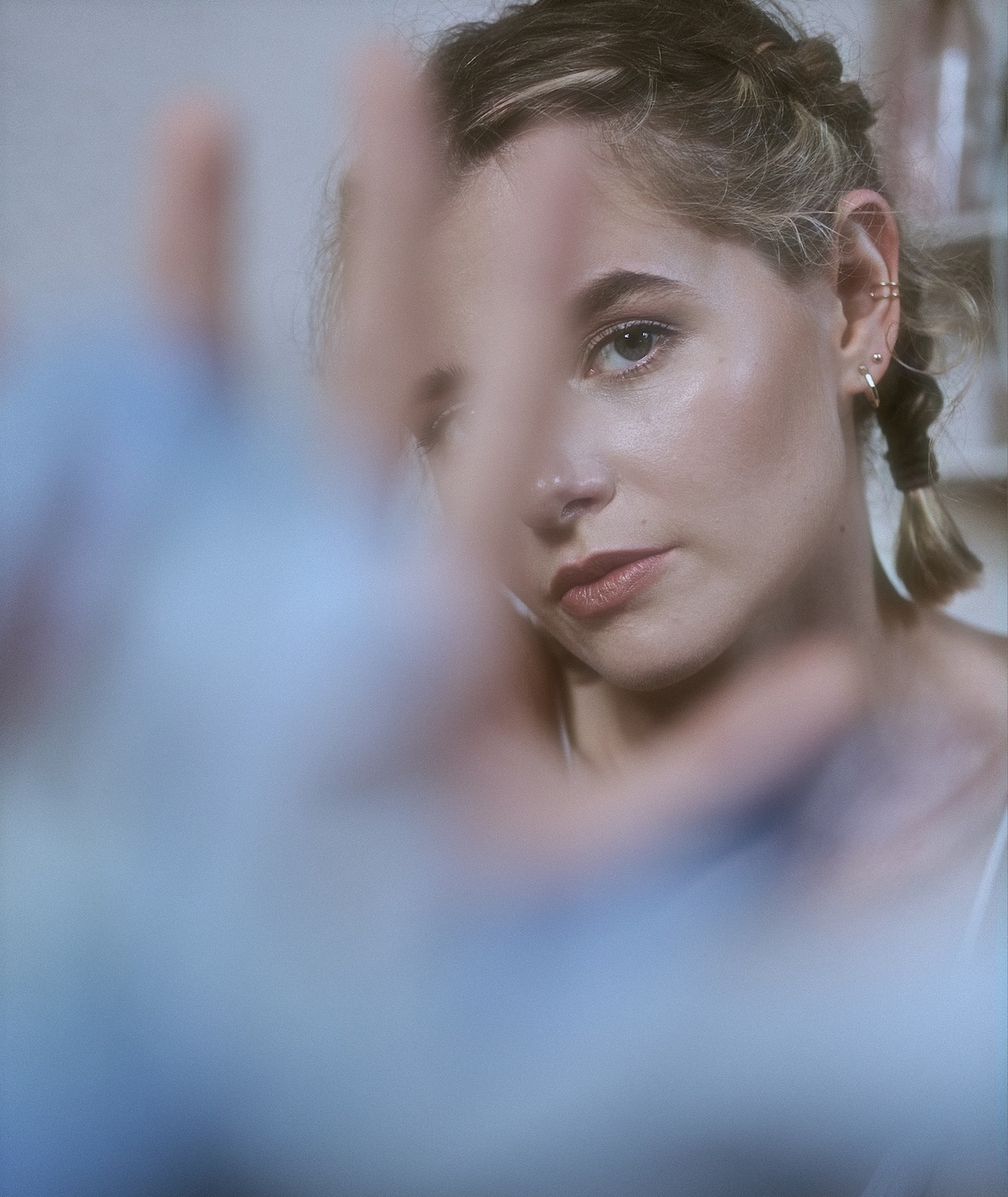
Do you have any new respect or new favorite tracks from the Radiohead record now that you’ve spent so much time with it?
Rosie Carney: I mean I always knew how amazing each individual in the band is, but it wasn’t until I did this project that I learned to appreciate the musicianship within each song. It’s mental how much thought and talent are within each second of each song.
I’ve heard various artists and songwriters talk about studying other great songs to learn some of their ins and outs. What do you think you’ve taken away from studying Radiohead?
Rosie Carney: Covering The Bends taught me so much about my own relationship with music and showed me how to let myself go whilst making it. I tend to hold myself back in ways when I’m making music; I get all these crazy ideas, but tend to limit myself, but learning these songs and making them my own took me out of that box and placed me in a bigger musical world where I’m really not afraid to experiment with my own sound and voice.
Covering ‘The Bends’ taught me so much about my own relationship with music and showed me how to let myself go whilst making it.
Rosie Carney: This is a really hard question as I do really love every song, but I think if I had to choose a favourite it would have to be either “Fake Plastic Trees” or “[Nice Dream]”. “Fake Plastic Trees” has meant the most to me for the longest, whereas “[Nice Dream]” gave me confidence to start using my voice as an instrument/texture while I was covering the album.
Having done this, where would you recommend other musicians start, who might aspire to do the same thing?
Rosie Carney: Honestly, I would say there is no real starting point. Some people would probably want to work track for track, and that’s cool, but for me it was all about doing what felt right, finding and feeling the real essence within each song, and then listening to myself and my gut to allow myself to do what felt most natural to me without any pressures from the outer world or the inner critic. It’s scary to let something be personal and to let yourself be vulnerable when working on something, but when you allow yourself that space and freedom, that’s when the true magic happens. I kind of had to learn to just trust myself with this one, and some people will probably hate what I’ve done, but that’s okay because I know that I did the best I could.
It’s scary to let something be personal and to let yourself be vulnerable when working on something, but when you allow yourself that space and freedom, that’s when the true magic happens.
Would you do it again? Are any other LPs now on your periphery? Would you do Radiohead again?
Rosie Carney: Well as I said, I am getting a few requests… I don’t plan on becoming a Radiohead tribute act.. but who knows what another lockdown could bring.
What is your biggest takeaway from this record, and what do you hope listeners take away from it?
Rosie Carney: My biggest takeaway from this whole project was that it is okay to slow down and to go back to your roots. Even if it takes people a sec to catch on, even if people don’t catch on – so long as you’re doing it for yourself that’s the main and most fulfilling thing. I hope listeners can hear and see me as I truly am, because I felt I was just being me whilst doing it, and that was very rewarding for me.
Even if it takes people a sec to catch on, even if people don’t catch on – so long as you’re doing it for yourself that’s the main and most fulfilling thing.
Stream: ‘The Bends’ – Rosie Carney
— — — —

Connect with Rosie Carney on
Facebook, Twitter, Instagram
Discover new music on Atwood Magazine
:: Stream Rosie Carney ::

